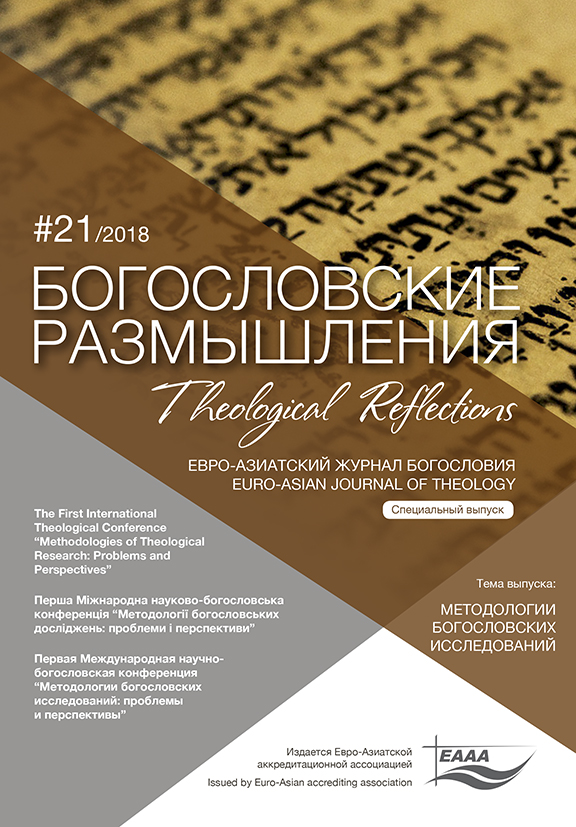Methodological Developments in Biblical Exegesis: Author – Text – Reader
DOI:
https://doi.org/10.29357/2521-179X.2018.21.1Keywords:
biblical exegesis, literary criticism, communication-oriented exegetical method, AmosAbstract
The methods used in biblical exegesis follow the developments within literary criticism, although at a certain distance.
Every text analysis, both in biblical exegesis and literary criticism, has to deal with the triplet: author – text – reader. This triplet is in itself very obvious; but this is not the case for the chosen focus in this triplet. In this paper, I would like to describe the developments in the exegetical approaches from the view point of the three possible focusses in this triplet, against the background of the developments in literary criticism. After abstracting all sorts of details and various side-developments, I distinguish three phases: a first phase with a focus on the author from the 17th century onward, a second phase, with a focus on the text from the 60’s of the last century onward, and a third phase with a focus on the reader, existing since the last couple of decades.
Because biblical exegesis is not just about theoretical approaches towards a text, but also about the concrete analyses of biblical texts, I will use especially Amos 7:10-17, the well-known story about the clash between the priest Amaziah and the prophet Amos, as an example of the three phases of exegetical methods, without giving an exhaustive exegesis, but pointing out some characteristic aspects of the exegesis in these three phases.I will conclude my paper by presenting my communication-oriented exegetical method, in which I integrate all three focusses of the three phases I distinguish.
References
- Without references
Downloads
How to Cite
Issue
Section
License
Copyright (c) 2020 Archibald WIERINGEN

This work is licensed under a Creative Commons Attribution-NonCommercial 4.0 International License.
All articles published in the Journal are distributed under a Creative Commons Attribution-NonCommercial 4.0 International License
By submitting an article for publication in Theological Reflections: Eastern European Journal of Theology the author grants the editors the right to publish the article and distribute it in electronic and print form.
The author reserves all copyrights and the right to use the materials of the article in whole or in part for educational purposes, to write his own dissertations, to prepare abstracts, conference reports, oral presentations, etc., as well as post electronic copies of articles (including the final electronic version downloaded from the journal’s official website) on non-commercial web-resources without the consent of the editorial board and founders.



